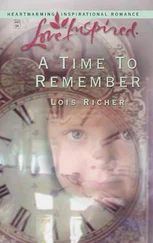Alexander Todd - A Time to Remember
Здесь есть возможность читать онлайн «Alexander Todd - A Time to Remember» весь текст электронной книги совершенно бесплатно (целиком полную версию без сокращений). В некоторых случаях можно слушать аудио, скачать через торрент в формате fb2 и присутствует краткое содержание. Город: Cambridge, Год выпуска: 1983, ISBN: 1983, Издательство: Cambridge University Press, Жанр: Химия, Биографии и Мемуары, на английском языке. Описание произведения, (предисловие) а так же отзывы посетителей доступны на портале библиотеки ЛибКат.
- Название:A Time to Remember
- Автор:
- Издательство:Cambridge University Press
- Жанр:
- Год:1983
- Город:Cambridge
- ISBN:0 521 25593 7
- Рейтинг книги:3 / 5. Голосов: 1
-
Избранное:Добавить в избранное
- Отзывы:
-
Ваша оценка:
- 60
- 1
- 2
- 3
- 4
- 5
A Time to Remember: краткое содержание, описание и аннотация
Предлагаем к чтению аннотацию, описание, краткое содержание или предисловие (зависит от того, что написал сам автор книги «A Time to Remember»). Если вы не нашли необходимую информацию о книге — напишите в комментариях, мы постараемся отыскать её.
A Time to Remember — читать онлайн бесплатно полную книгу (весь текст) целиком
Ниже представлен текст книги, разбитый по страницам. Система сохранения места последней прочитанной страницы, позволяет с удобством читать онлайн бесплатно книгу «A Time to Remember», без необходимости каждый раз заново искать на чём Вы остановились. Поставьте закладку, и сможете в любой момент перейти на страницу, на которой закончили чтение.
Интервал:
Закладка:
My wife and I returned to Australia from Wellington, and proceeded directly from Sydney to Mackay in Queensland with our old friends Charles and Eileen Shoppee; from there we set out on a five-day cruise of the islands lying off the coast, and visited the Barrier Reef itself where, it being low water when we arrived, we were able to land and cruise around in glass-bottomed boats looking at the fantastic gamut of highly coloured plant and animal life that abounds on the reef. The Barrier Reef fully lived up to our expectations, and we were so attracted by the relatively undeveloped Lindeman Island in the Whitsunday Passage that we resolved to return to it. And return we did, for we spent two marvellous holidays there in 1968 and 1974. During the next five or six weeks we visited all the Australian capital cities, spending a most enjoyable time with friends in all of them before returning to Cambridge and normal life again. This was my wife's first visit to Australia; like me, she at once fell in love with the country, and we have been frequent visitors to it ever since.
During the winter and spring of the year 1960-61 I was able to push on with research, especially in the field of the aphid colouring matters, which got more complex and fascinating the farther we explored them. As far as I recall, life was rather uneventful although, outside the laboratory, I had A.C.S.P. work and made short trips to Germany and Switzerland, for the most part lecturing or dealing with International Union business. In May 1961, however, my wife and I went to the United States, where I received an honorary degree from Yale University. Although I had received a considerable number of honorary degrees from foreign universities, this was the first occasion I had attended (let alone participated in) an American Commencement Day ceremony. It was quite an experience -the procession across the open common in New Haven to the open-air auditorium, where, on a warm early summer morning, the graduations occurred; it was, incidentally, the first time I had seen degrees conferred on graduating students in blocks of fifty or so at a time, rather than individually. To a European like myself, the ceremonial seemed slightly brash, but it was impressive.
After the festivities were over, we were met by my friend Dick Perkin - the creator and President of Perkin Elmer Inc. - whom I had known since my former laboratory colleague, Ralph Gilson, had joined him to develop an English subsidiary. Dick lived in New Canaan, Connecticut, not far from New York, and he had driven up to New Haven to take us back to his home, where he and his wife Gladys entertained us for some days before we went north to Boston and Harvard to visit the Woodwards. Dick Perkin was a remarkable man. Although an extremely successful businessman, he was by no means a typical 'tycoon'. A modest, friendly, well-read person he could be, and was, a delightful host and a loyal friend; his sudden death some years later was a sore blow to all who knew him. When he met us that day at Yale he was driving his latest acquisition - a light grey Bentley touring model built to his specification. He used to relate with glee, how he went down to the quayside in New York to collect it when it was unloaded from the ship which brought it from England. When he got there, the car was standing on the quay, and beside it stood a coloured man who was peering at the controls and, now and then, rather gingerly touching the coachwork. Said Dick, 'Well, what do you think of the car?' 'Dat ain't no motor car, sah! Dat sure am a automobile!' One evening, during our stay with the Perkins on that occasion, we had a barn dance for the children and their friends from the surrounding district. It was a terrific party, and I can still see Dick and my wife demonstrating the Charleston to the youngsters with astonishing vigour! Before returning home after these events, we had our usual spell in Harvard. Bob Woodward was in his usual form, which meant that I found sleep at a premium during my stay; but, as usual, our chemical discussions were stimulating. Later that summer I attended a meeting of the Bureau and Council of IUPAC in Montreal. I and the other delegates were comfortably lodged in the Queen Elizabeth Hotel, but we had to travel each day a considerable distance across town to our meeting place at the University of Montreal. H. W. Thompson (later Sir Harold Thompson, but then, as now, universally and affectionately known as Tommy) was a member of the British delegation, and he had borrowed a car, either from Perkin Elmer Inc. or from Dick Perkin himself, on a visit to Norwalk, which he made en route to the Montreal meeting. On the second morning, Tommy very kindly offered to take my colleague Harry Emeleus and myself from the hotel to the university; we accepted, and set off. To whom any blame should be attached I do not know, but, on a street crossing, we were hit by a car travelling at high speed from our left; our car spun across the street and struck a bank building head on at a fair speed. I was sitting beside Tommy in the front seat; I remember realising that there was going to be a collision, and then the crash into the wall of the bank. I rather naturally assumed I was dead, but after I came to in a few moments, I realised that I wasn't; indeed, apart from a fair amount of blood running down one side of my face from a cut on my head, I seemed more or less all right, and was able to extricate myself and stand up in the street leaning on the car. Tommy had no more than a bruise, but Harry appeared to have broken his collar bone, and possibly dislocated a shoulder. We remained there until an ambulance arrived a few minutes later, and took us to the Queen Victoria Hospital. We were well treated, and after Harry's collar bone had been dealt with, and I had been sewn up, we were taken back to our hotel, each with a bottle of pain-killing tablets, which I fear we put on one side and relied on whisky to restore our rather flagging spirits. We sent Harry back to England, but I carried on, and, when the meeting ended, I went down to New York and spent a couple of days with my son Sandy who, having completed his Oxford Part I in chemistry, was spending the summer vacation working in the research laboratories of Merck Sharp and Dohme in Rahway, through the good offices of my old friend Max Tishler, the company's Director of Research. I thus suffered no harm from this adventure, but it certainly enlivened the IUPAC meeting; I fear the Perkin Elmer car was a write off! The Montreal meeting saw the beginnings of a battle over the position of Taiwan in IUPAC, and in the other constituent bodies of the International Council of Scientific Unions, which was to last for nearly twenty years before a solution acceptable both to Taiwan and the People's Republic of China could be reached. The Taiwanese had inherited the membership of the Republic of China when Chiang Kai Shek and his followers retreated to Taiwan; in Montreal the move to have them expelled was initiated by the Soviet and East European delegates, who wished to see them replaced by the mainland Chinese with whom the Soviet Union at that time had very close relations; it may be more than a coincidence that an amicable solution was only reached following the later breach in Soviet-Chinese friendship.
Meanwhile, at home in Britain matters were stirring in the area of science policy, and government relations with science and industry. In 1959 the office of Minister for Science had been created, and the duties of the Minister described in the following terms:
The Minister for Science is responsible to Parliament for the Council of Scientific and Industrial Research, the Medical Research Council, the Agricultural Research Council and the Nature Conservancy and is Chairman of the five Privy Council Committees to which they report... The Minister for Science will also exercise Ministerial functions under the Atomic Energy Acts and will exercise supervision of the programme of space research... Other Ministers remain responsible for the scientific establishments within their own Departments; but the Minister for Science is responsible for broad questions of scientific policy outside the sphere of defence and is advised by the Advisory Council on Scientific Policy on general questions which relate to the whole field of civil science.
Читать дальшеИнтервал:
Закладка:
Похожие книги на «A Time to Remember»
Представляем Вашему вниманию похожие книги на «A Time to Remember» списком для выбора. Мы отобрали схожую по названию и смыслу литературу в надежде предоставить читателям больше вариантов отыскать новые, интересные, ещё непрочитанные произведения.
Обсуждение, отзывы о книге «A Time to Remember» и просто собственные мнения читателей. Оставьте ваши комментарии, напишите, что Вы думаете о произведении, его смысле или главных героях. Укажите что конкретно понравилось, а что нет, и почему Вы так считаете.










